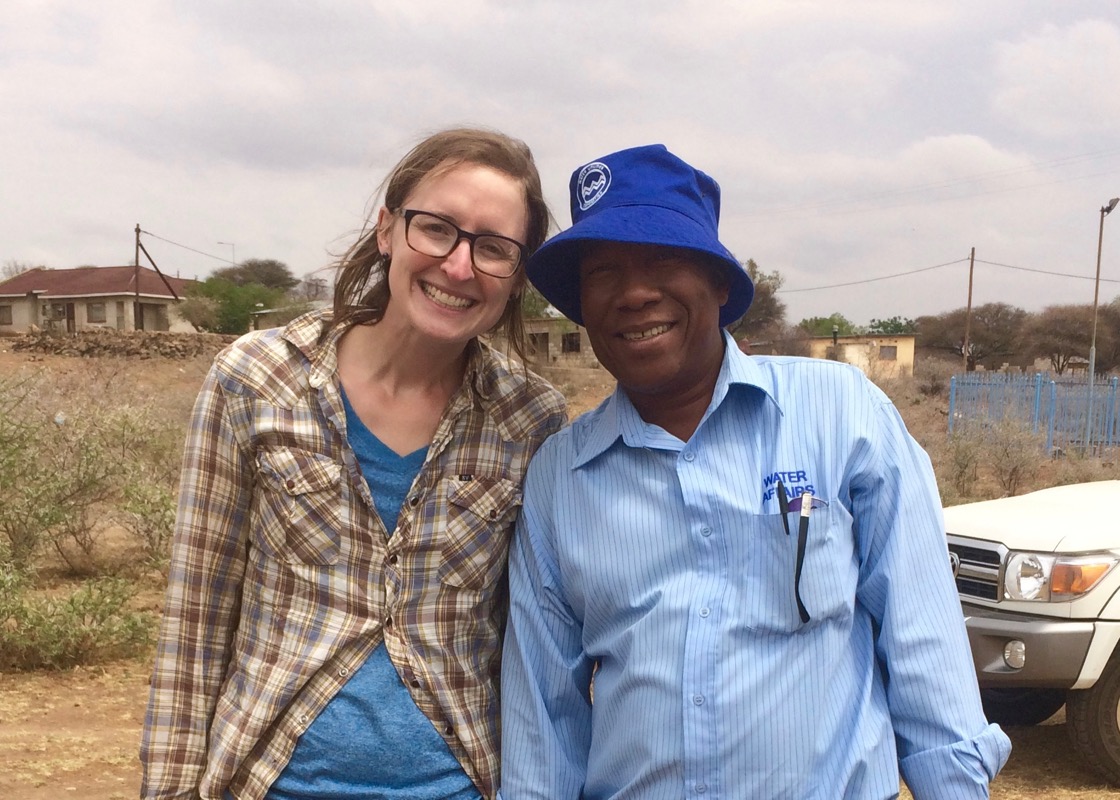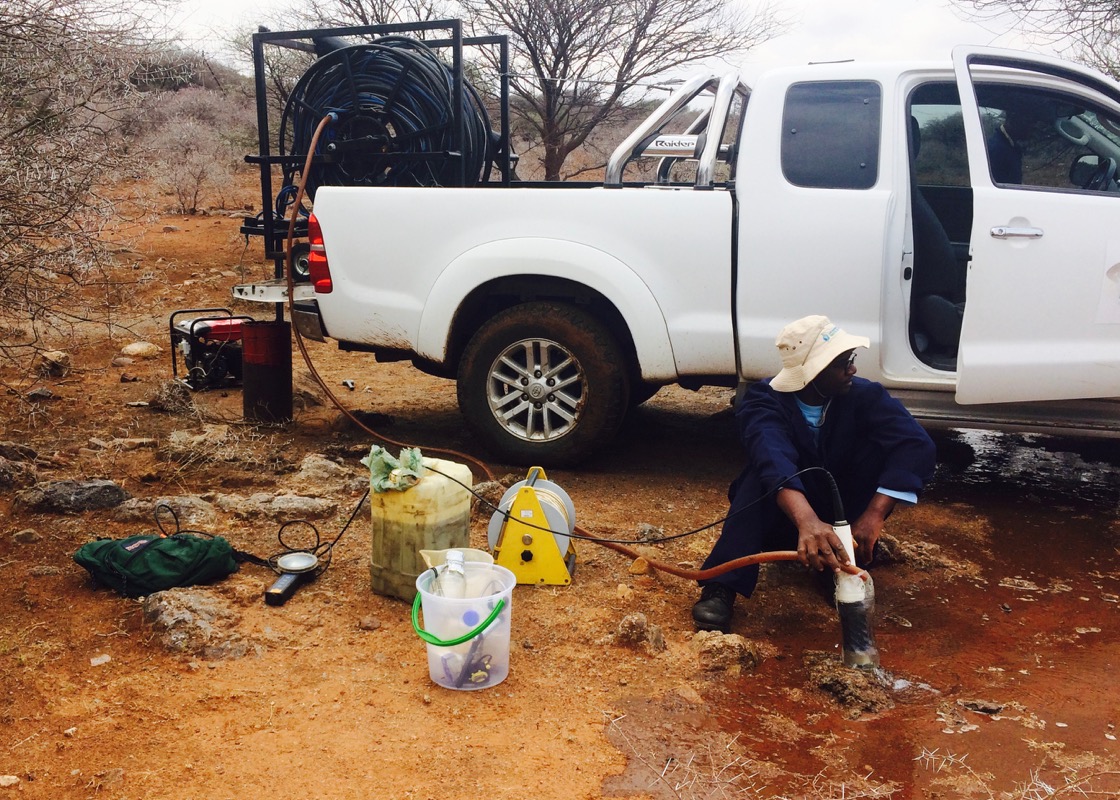Ramotswa, a village in South-East District of Botswana, is located on top of the dolomitic Ramotswa transboundary aquifer, which is shared between Botswana and South Africa. Residents of Ramotswa are facing multiple water security challenges, including nitrate contamination of groundwater (on which many depend) and multi-year droughts.

Mr. Moses Moehadu (Water Utilities Corporation, Botswana) (right) welcoming Bonnie McGill (KBS, IWMI-SA) to Ramotswa to conduct research
A new research study, led by KBS graduate student Bonnie McGill, conducted by the International Water Management Institute – Southern Africa Office (IWMI-SA) aims to shed light on the issue of nitrate contamination of groundwater in Ramotswa. For this purpose, a team of researchers from IWMI visited Ramotswa during the period October 17-21, 2016.
Researchers aimed to identify (a) the level of denitrification (microbial nitrate removal) that is occurring in the aquifer, (b) how nitrate concentrations change with rainfall and groundwater recharge, and (c) how much human waste contributes to nitrate contamination. These research objectives are under the umbrella of the Resilience in the Limpopo Basin (RESILIM): The potential of the Ramotswa transboundary aquifer project, which is implemented by IWMI and funded by the United States Agency for International Development (USAID).
At present, groundwater in Ramotswa is mixed with other water sources to dilute the nitrate before it is delivered to the village. This research study is important because the Botswana government faces difficult decisions regarding whether to invest in the expensive reverse osmosis technology to remove the nitrate from groundwater and/or proceed with a proposal to use bioremediation to encourage more denitrification within the aquifer.

Dr. Manuel Magombeyi (IWMI-SA) monitoring water quality while pumping water from a borehole in Ramotswa.
The team of IWMI researchers met with stakeholders from the University of Botswana and the Department of Water Affairs. Representatives from the Water Utilities Corporation and the Department of Geological Survey joined the team in the field to provide their support and welcome IWMI-SA to Botswana. At this time, groundwater samples have been collected from 14 boreholes in Ramotswa.
Bonnie McGill is a KBS graduate student in Dr. Steve Hamilton‘s lab, and is currently abroad as an intern at IWMI-Southern Africa. She is a USAID Borlaug Fellow. While living abroad, McGill is working under the supervision of Dr. Karen G. Villholth, Principal Researcher and Sub-Theme Leader (Groundwater and Underground Solutions), IWMI. This story was originally published on IWMI’s website.

A legacy of conservation; a commitment to sustainability.
3700 E. Gull Lake Drive
Hickory Corners, MI 49060
(269) 671-5117
info@kbs.msu.edu